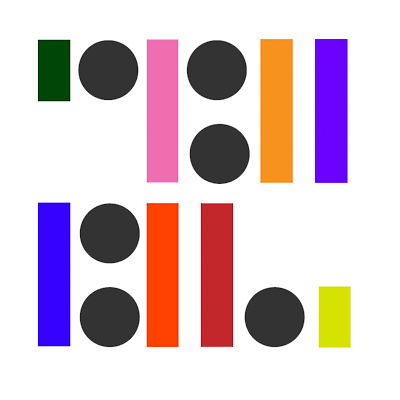designing hypotheticals
PERFORMANCE, COMPUTATION, & SPECULATIVE PROTOTYPING
• 31. July - 25. August 2017
• four weeks, full-time in Berlin, Germany
• 10-15 participants accepted
• Based in ACUD MACHT NEU
Pricing
Artist / Student (Full Time)*
Professional*
course
description
In this four-week intensive program guided by artists and speculative designers Sascha Pohflepp and Chris Woebken, you will be designing experiences through use of live-action role play techniques (LARPing), computer vision, machine learning, and speculative prototyping.
We will provide a framework that revolves around a rapidly changing world increasingly bound to be populated by non-humans, both natural and artificial—such as advanced AI systems. Making their perspectives experienceable is going to be a key angle to designing for the new societies that will emerge.
The techniques will be diverse and collaborative exploration will be encouraged. A design for a specific community may be prototyped by crafting a narrative and using it as a laboratory in an iterative design process. More fictional challenges could be prototyped in a virtual environment allowing for a collaborative exploration of otherwise impossible spaces.
Key parts of the curriculum will be an introduction to simulation techniques across a wide variety of scales and media, including progressive live-action methods guided by artist and game designer Susan Ploetz, an introduction to speculative design methods and access to tools and working with digital fabrication technologies.
progressive live-action methods guided by artist and game designer Susan Ploetz, an introduction to speculative design methods and access to tools and working with digital fabrication technologies.
A second workshop with artificial intelligence specialist Gene Kogan will give participants an opportunity to create systems that may be informed by insights gained during previous exercises.
Field-trips to practitioners working with simulation tools,weekly readings and discussions around the subject aim to both supplement the learning experience, to provide inspiration and critical analysis.
At the end of the class, those methods will have helped you to make great steps forward in your design process and you will have gained a whole new toolset within the scope of your practice. The final result will be a series of design provocations, shared and discussed in an event at ACUD which will be an exhibition as much an immersive experience.
in this course,
you will be
introduced to
Essential futures studies principles, learning to identify signals, extrapolate arcs, and to develop inspiring and provocative artifacts.
Ability to craft situations, script characters and practice improv as a valuable tool to evaluate complex socio-technological hypothetical worlds through life-sized environments and prototypes.
Interdisciplinary and collaborative engagements
Practicing improv as a valuable tool for embodied brainstorming
Crafting Situations
Scripting Characters
Introduction to essential futures studies tools
Strategies for rapid product prototyping
Digital fabrication intensive
Show production
Documentation and Presentation
Critical Analysis
course outline
Week 1: Focuses on ideas/concepts/larping/performance/play - Interdisciplinary and collaborative engagements - Practicing improv as a tool for embodied brainstorming - Crafting Situations - Scripting Characters - Product development through re-appropriati
Week 2: Prototyping designs with Computer Vision/Machine Learning with Gene Kogan - Introduction to Computer Vision/Machine Learning - Introduction to Speculative Design - Introduction Futures Studies Tools
Week 3: Fabrication - Strategies for Rapid product prototyping - Design Fiction through live-action role play as a design tool - Product development through re-appropriation techniques
Week 4: Show production - Continued iterations and finalization of designs - Documentation and Presentation - Exhibition
who is this
program for?
- Designers - Artists - People working in Public Service - Architects - Urban Planners - Writers - Engineers - Game Designers - Economists - Many More

